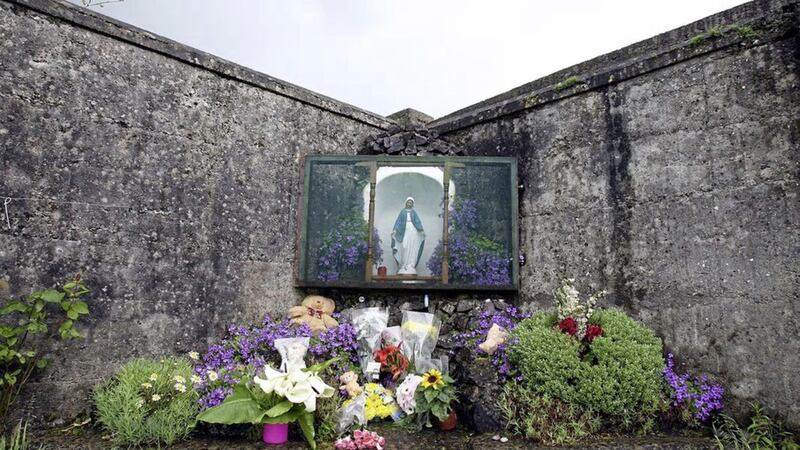If the history of 20th century Ireland can best be told through the eyes of its people, I met a man last year whose eyes have seen more history than most - and not the sort you read about in history books. We talked at a hurling match on a damp day in the west of Ireland.
He was born in the Tuam Mother and Babies' Home about 1950, when his father left his pregnant, unmarried mother. She was later abandoned by the inappropriately named Bon Secours nuns. They turned her out of the home when her son was less than a year old.
As the full horror of what happened in Tuam was emerging, he told of emotional and physical deprivation, human indifference and sometimes cruelty. His anger extended beyond the home because, after he left, he was still stigmatised as a home baby.
He was sent to work on a farm, where he was bullied and beaten, mainly by the farmer's sons. He was underfed and paid a pittance, but that soon stopped after he was sent on an errand one evening after dark, with no light on the family bicycle. When the gardai stopped him, he knew they were expecting him.
He was fined. His "wages" were stopped to pay the fine and for a long time after it was paid.
When the family would go off to Galway Races, the house was always locked and he had nothing to eat. Once, knowing they were going, he left a window unlocked and entered the house for one of his few proper meals.
He knew he would never be socially accepted in the area, where the morally superior scorned him from behind what Brinsley McNamara called the squinting windows. So he ran off to join the Irish army.
For the first time he was given regular food, clothing and a guaranteed bed. The work was easy. All he did, he said, was run around with a gun in his hand.
At the end of the first week he was shocked to receive £12 in wages. They gave him the same the next week and every week. He soon bought his first suit and eventually a small car. When he drove to his home area, no one recognised him. He traced his mother in England and brought her home, but not to the home.
As we left the match, we agreed how his story describes 20th century Ireland: the inhumanity and inequality of the "Free" State and the Church to which it granted special constitutional status.
Armed only with the concept of sin, nuns were neither trained nor educated in the complex world of childcare. Were they acting alone, we wondered, or were they following the hierarchy's orders, while Ireland prayed for the conversion of Russia? (God apparently answered our prayers by giving us Vladimir Putin.) No one prayed for the conversion of Ireland to Christianity.
The Church has apologised for what happened inTuam. But Tuam's bishop and Dublin's archbishop apparently differ on what they are apologising for. In any case, how do you apologise to the dead?
When Jack Lynch marched his army to the border in 1969, the Tuam baby was in their ranks, the socially imprisoned marching to free us. He wondered why, for 100 years, the IRA was trying to "free" the north, when thousands of women and children remained un-free in the south. But then the IRA was too busy fighting for Ireland to care about its people.
When Jean McConville was secretly murdered, Church and state here neglected her orphans just as happened in Tuam. In Belfast we buried thousands of un-baptised children outside Milltown cemetery, because the Church had blessed the cemetery soil rather than the children.
This month (not seventy years ago) Marie Collins, a survivor of clerical child abuse, resigned from a papal commission for child protection. She said too many in the Vatican were unwilling to implement the Pope's reforms on preventing child abuse.
While we stand transfixed at unionism and nationalism, Belfast's Intensive Family Support Service faces closure, because there is no one in Stormont to fund the 260 families it supports. In the south there were 2,500 children homeless on Christmas Day. In the north there are more than 100,000 children in poverty.
100 years from now, if hurling survives the ravages of the GAA, will old men still stand in the rain at matches and wonder why the important things in Ireland have not changed? Probably, because so far for Ireland's children, the 21st century is not shaping up much better than the 20th.









